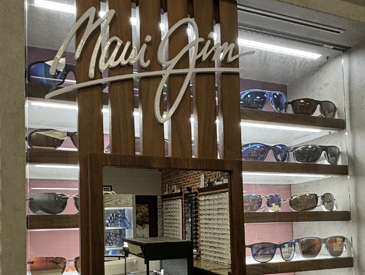The Ultimate Guide to Specialty Contact Lenses: What You Need to Know
Blog:The Ultimate Guide to Specialty Contact Lenses: What You Need to Know

The Ultimate Guide to Specialty Contact Lenses: What You Need to Know
For many people, traditional contact lenses provide effective vision correction. However, not all eyes are the same, and some individuals require specialized lenses to achieve clear, comfortable vision. Whether you have an irregular cornea, suffer from dry eye, or need advanced correction for high prescriptions, specialty contact lenses offer customized solutions designed to meet your unique visual needs.
In this guide, we’ll explore the different types of specialty contact lenses, their benefits, and how to determine if they’re the right choice for you.
Scleral Lenses
Scleral lenses are large-diameter gas permeable lenses that vault over the cornea and rest on the sclera (the white part of the eye). These lenses provide stable vision and are particularly useful for individuals with:
• Keratoconus
• Severe dry eye
• Corneal transplants
• Irregular corneas due to surgery or trauma
Scleral lenses create a tear-filled reservoir that keeps the eyes hydrated, offering relief for dry eye sufferers while improving vision.
Hybrid Contact Lenses
Hybrid lenses combine the best of both worlds: a gas permeable center for crisp vision and a soft outer skirt for enhanced comfort. These lenses are designed for individuals who struggle with the comfort of rigid gas permeable (RGP) lenses but need better clarity than soft lenses can provide. Hybrid lenses can help with conditions such as:
• Mild to moderate keratoconus
• Astigmatism
• Post-surgical vision irregularities
Rigid Gas Permeable (RGP) Lenses
RGP lenses are smaller, firm lenses that allow oxygen to pass through to the cornea. They offer superior visual sharpness compared to soft lenses, making them an excellent choice for individuals with high astigmatism or irregular corneal shapes. While they may take some time to adjust to, they provide long-lasting vision correction and durability.
Orthokeratology (Ortho-K) Lenses
Ortho-K lenses are specially designed rigid lenses worn overnight to temporarily reshape the cornea. This allows for clear vision during the day without the need for glasses or contact lenses. Ortho-K is commonly used to:
• Slow myopia progression in children
• Provide a non-surgical alternative to LASIK
• Correct mild to moderate nearsightedness and astigmatism
Toric Lenses for Astigmatism
Standard soft lenses may not provide stable vision for individuals with astigmatism due to the irregular curvature of their cornea. Soft toric lenses have a specialized design that ensures they stay properly aligned on the eye, providing clear and consistent vision.
Multifocal Contact Lenses
For individuals experiencing presbyopia (age-related near vision decline), multifocal lenses allow for clear vision at all distances. These lenses are available in both soft and RGP designs, offering an alternative to bifocal glasses.
Caring for Specialty Contact Lenses
Proper care and handling of specialty lenses are essential for maintaining eye health and maximizing lens longevity. Follow these key tips:
• Clean and disinfect daily – Use the recommended cleaning solution to remove debris and protein buildup.
• Avoid tap water exposure – Always use sterile solutions to rinse your lenses.
• Follow replacement schedules – Overwearing lenses beyond their recommended lifespan can lead to discomfort and infection risks.
• Attend follow-up visits – Regular eye exams ensure your lenses continue to fit properly and provide optimal vision.
Schedule Your Contact Lens Exam Today
Specialty contact lenses provide life-changing vision correction for individuals with unique eye conditions. We will assess your vision, fit you with the right lenses, and ensure you receive the best possible care for your unique eye health needs.
If you’re struggling with an eye condition, schedule an eye exam with Texas State Optical to explore specialty contact lenses options. Visit our office in Magnolia, Texas, or call (281) 946-2020 to book an appointment today.


